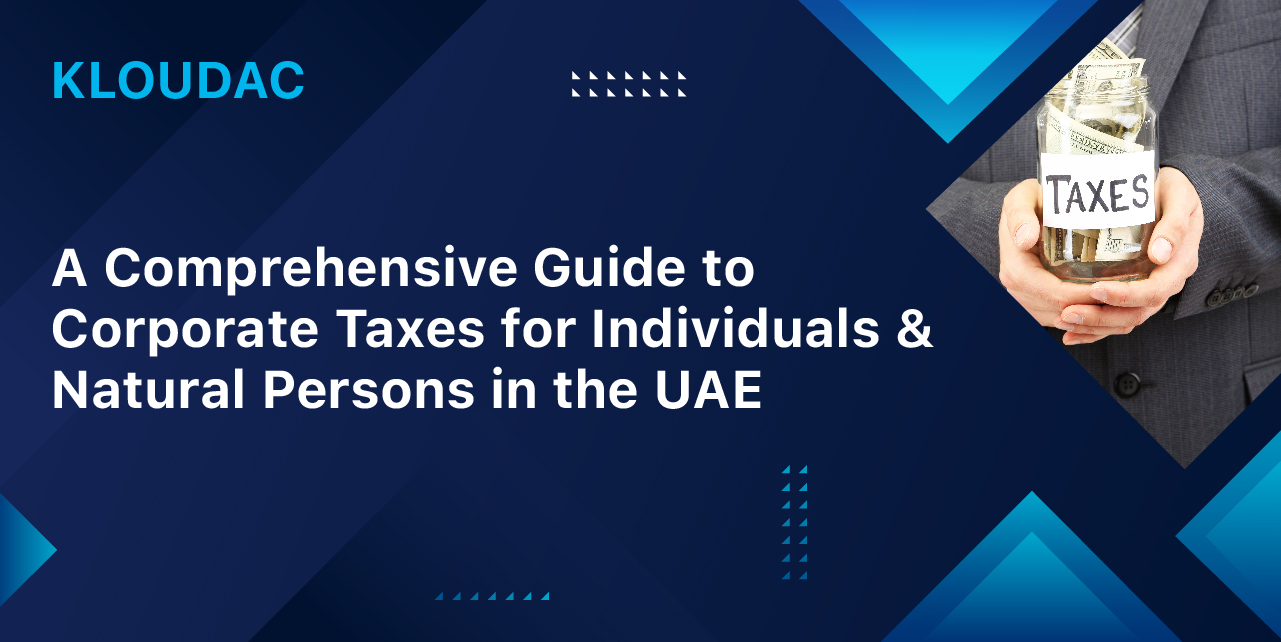The United Arab Emirates (UAE) has emerged as a thriving hub for business and investment, attracting individuals and natural persons worldwide. One of the key factors contributing to this growth is the favorable tax environment.
Understanding the Tax Structure
Unlike many other countries, the UAE does not impose federal income taxes on individuals and natural persons. However, for corporations, the situation is different. Each emirate in the UAE has the authority to levy corporate taxes independently.
Corporate Taxes in Abu Dhabi
Abu Dhabi imposes a corporate tax rate of 2.5% on oil and gas companies and 55% on banks. Other companies, both free zone and non-free zone entities, are generally exempt from corporate income taxes in Abu Dhabi. It’s crucial to remember that tax regulations can change, so staying updated on any amendments is advisable.
Corporate Taxes in Dubai
Dubai, one of the most prominent business destinations in the world, has a different approach to corporate taxes. Free zone companies in Dubai are often granted a tax holiday for a specific period, typically 15 to 50 years, making it an attractive option for businesses.
Non-free zone entities, on the other hand, may be subject to a corporate tax rate, which is generally set at 9%.
Some likely scenarios where income could come under corporate tax:
- High Annual Income for Natural Persons: Individuals residing in the UAE with an annual income exceeding the specified threshold (e.g., Dh1 million) may be subject to corporate tax.
- Director Remunerations: Director remunerations, especially those beyond ‘sitting fees,’ are likely to be considered as part of taxable income under corporate tax.
- Freelancers and Commercial Activities: Freelancers or individuals engaged in commercial activities, irrespective of their residency status, could fall under the corporate tax law if their earnings surpass the designated threshold.
It’s essential for individuals in these situations to maintain accurate records, including documentation of their income and associated costs, to comply with corporate tax regulations.
Exempted income category
The tax authority has explicitly stated that income from wages, real estate investments, or personal investments is exempted from corporate tax. Corporate tax applies to ‘natural persons’ in the UAE with an annual income exceeding Dh1 million. This includes director remunerations, distinct from directors’ ‘sitting fees’ treated as wages.
Freelancers or individuals engaged in commercial activities, regardless of residency, are subject to corporate tax if their earnings surpass the Dh1 million threshold. Therefore, maintaining accurate accounts and supporting documentation is crucial to demonstrating income and cost details.
Understanding Free Zones
Free zones play a pivotal role in the UAE’s economic landscape. These zones offer various incentives, including 100% foreign ownership, full repatriation of profits and capital, and, in many cases, exemption from corporate income taxes. Businesses operating within free zones can enjoy a business-friendly environment and simplified administrative processes.
VAT in the UAE
While there may not be a federal income tax for individuals, it’s essential to be aware of the Value value-added tax (VAT) implemented across the UAE. Currently, the standard VAT rate is 5%, and it applies to a wide range of goods and services. Individuals engaged in business activities need to ensure compliance with VAT regulations, including proper record-keeping and filing VAT returns.
Small business relief
This is the place where these individuals may explore the option of availing ‘Small Business Relief’ package introduced by the UAE tax authorities recently. The business should not surpass a yearly revenue of Dh3 million, and it should not have reached that income threshold in the preceding tax period as well.
KLOUDAC Accounting Firm Dubai, UAE
Navigating the corporate tax landscape in the UAE requires a thorough understanding of the regulations in each emirate. As key business hubs, Abu Dhabi and Dubai have distinct approaches to corporate taxes. KLOUDAC helps Individuals and natural persons involved in business activities to stay informed about any changes in tax laws and leverage the benefits offered by free zones. With careful consideration and adherence to regulations, the UAE continues to provide a conducive environment for business growth and investment.
